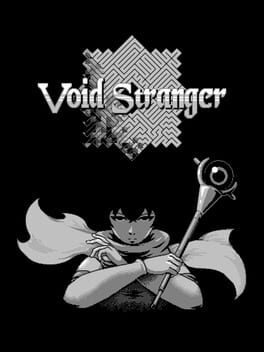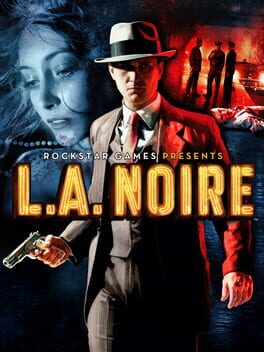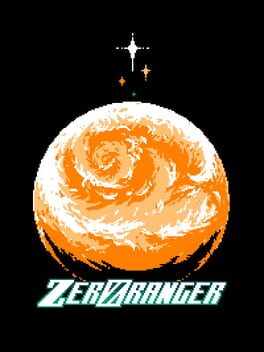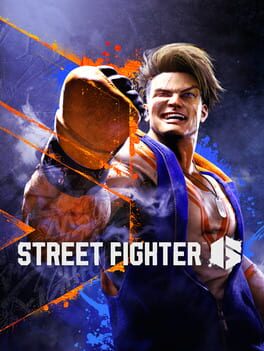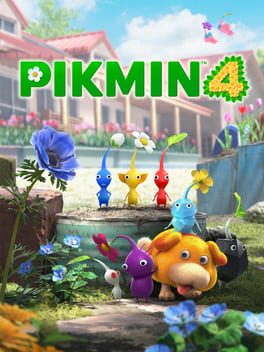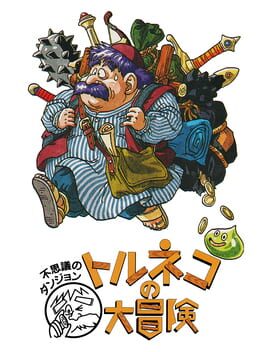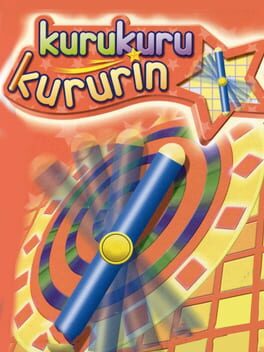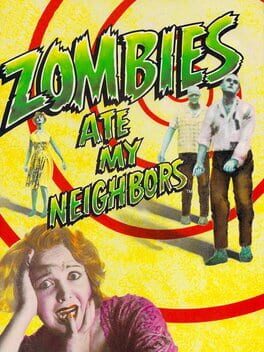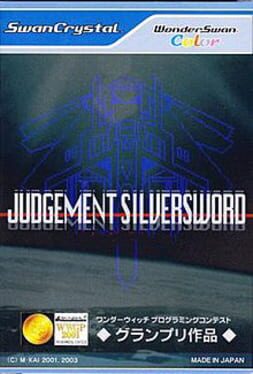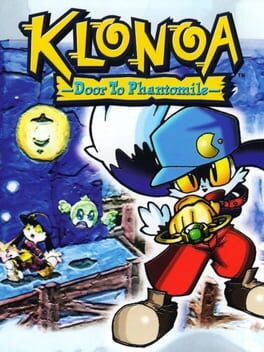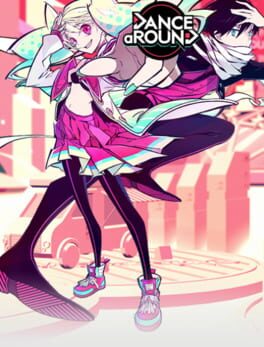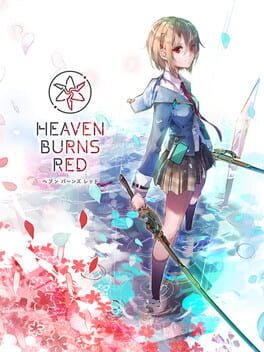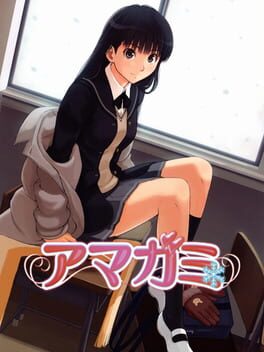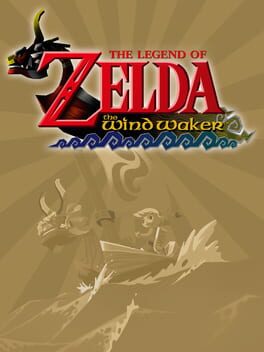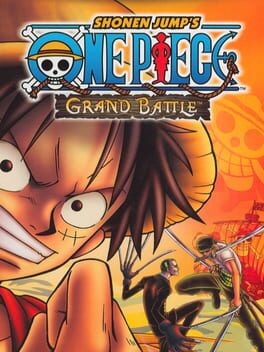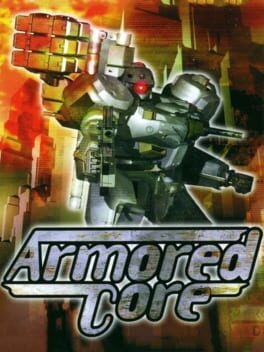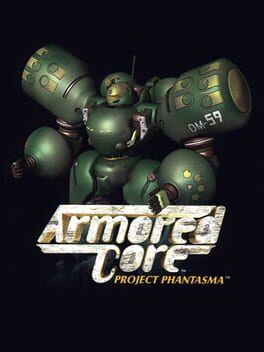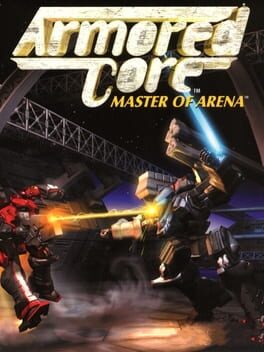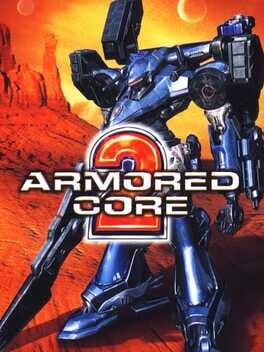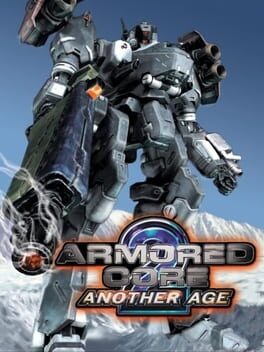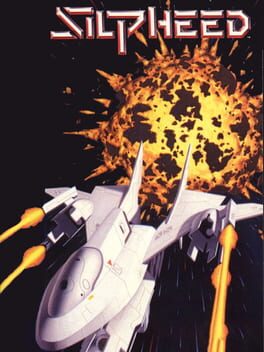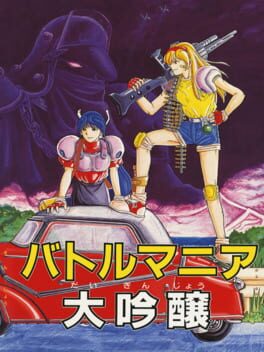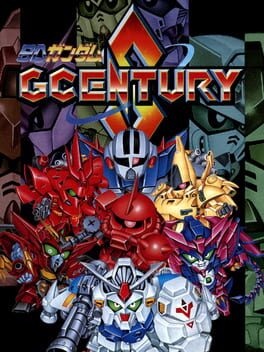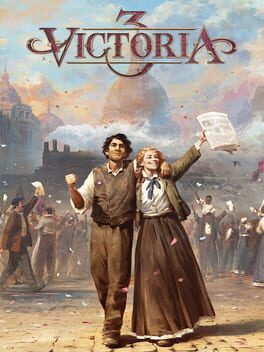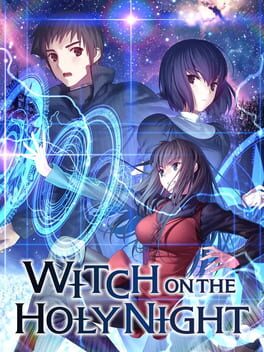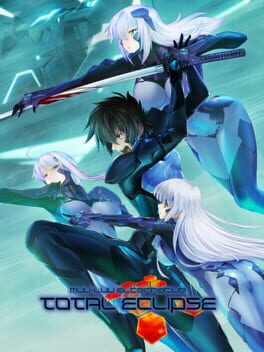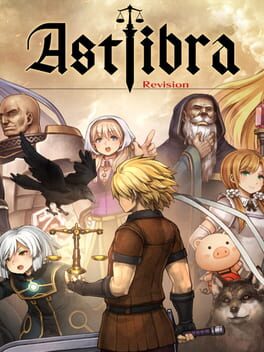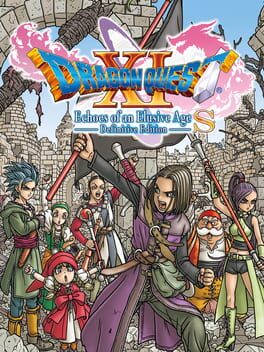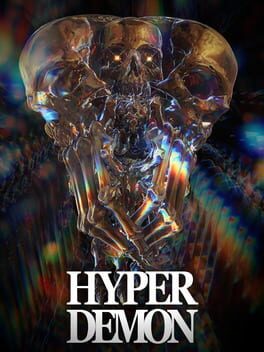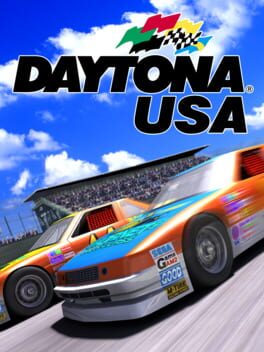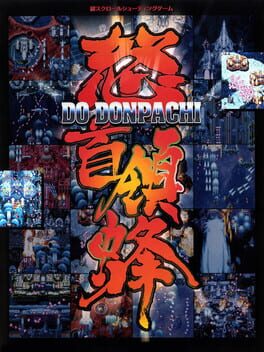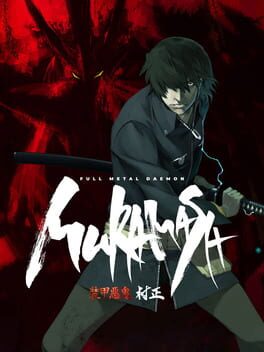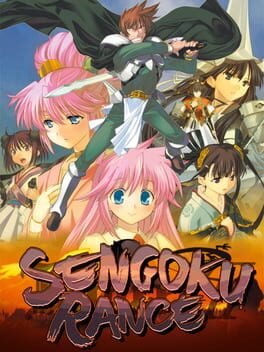mafu
185 reviews liked by mafu
Starfield
2023
Void Stranger
2023
A neat and multi-layered experience that does a fun spin on the sokobon puzzle form! the mysteries are of the cryptic mechanics and multiple unclear endings variety), but the meat of the game is solving grid-based sokobon-esque puzzles that have a bit of overlap with gameboy adventure stuff, note-taking on things that might be clues, and testing out ideas.
Void Stranger
2023
I love note-taking as gameplay - so satisfying to have a physical artifact that develops and fills up as you play. But what made it wonderful in my time with Void Stranger was sharing it with others, and getting complimented on my sketches and theories. That made playing so much fun. That's a really personal fun a game designer can't make for you, only provide an opportunity for. In that sense, this was the most fun I've had with a video game. Beyond grateful for such a unique and fascinating play experience, outside of the incredible artistic craft on display.
L.A. Noire
2011
Let it be known that I was not born a hater of L.A. Noire.
The entire concept appeals to me. Detective fiction is one of my favorite flavors. I am a great lover of video games that heavily feature immersive conversations. I prefer period pieces and more fantastical settings to the doldrums of life on present Earth. I have had little experience with Rockstar but know them via a profound reputation for quality, and nobody has ever played another video game by Team Bondi.
Not only would I say that I entered with no biases against L.A. Noire, I would say that I am the exact audience for it.
When I first started playing I was quickly smitten with the actor's in-game performances and the mechanics of crime scene investigation. I praised the multitudes of meaningless junk items that littered each crime scene because investigation should be about finding that which is significant, not just interacting with everything the game allows. The use of music and chimes to denote the existence of unclaimed clues struck me as clever and quite probably necessary. When the game first let me into a vehicle I was happy to obey every traffic law and immerse myself on the way to each objective. This roleplaying did not last. It could not last.
By the time I finished my work at the Vice desk I was so far ejected from the game that I was earning the lowest possible case ranking on purpose, out of sheer, seething spite.
There are no consequences to any action in L.A. Noire other than the possible reduction of that post-mission score. Unless the protagonist dies in a hail of gunfire or loses track of their target when tailing or chasing, they cannot fail, and in those instances the only penalty is that they may need to repeat approximately thirty seconds of gameplay. Failing to correctly intuit the broken, nonsensical logic of the spectacularly terrible interrogation interface does not change anything. Ever. The player will always receive the information that they need to continue the case, even if a suspect has to blurt it out for no sensible reason. If there appear to be two possible culprits in a case, feel free to book whichever one you find more offensive. The script has already decided that they are both the wrong answer, and there is no possibility in this case of finding the right one.
This puts the player at a terrible crossroads. One breed of player will accept the post-case grading system as sufficient motivation, and will try their best to make sense of the stupid idiot moon logic that L.A. Noire requires from the player to earn their perfect score. I have played every Ace Attorney game and two out of three mainline Danganronpas. Not one of those games features as many instances of arbitrary nonsense as L.A. Noire. Ever since the birth of that thrice-damned fools-lauded conversation wheel back in Mass Effect 1, these sorts of AAA games have been horrifically fumbling the roleplayer's intent as it travels from human to machine, and L.A. Noire does it even worse than most. In a good roleplaying game (do not start with me on whether or not L.A. Noire is a roleplaying game) the player is constantly asking themselves: "What do I want to do?" In a bad roleplaying game the player constantly asks themselves: "What does THE GAME want me to do?"
It did not take long for me to decide that L.A. Noire's interrogation system did not deserve the pleasure of my learning how to put up with it. In fact, it reminded me quite viscerally of my life in college, my every action graded by a rubric I did not respect and did not feel represented my interests in any way. I began to feel insulted, as if L.A. Noire were asking me to figure out when to use its stupid doubt button as a sign of submission. So that it could reward me with idiot points, signifying nothing but my obedience.
I still have no idea whether I'm supposed to actually take the context into account or if I'm just supposed to press the doubt button every time a character behaves in a way that no corporeal being ever has, and I refuse to learn. This is not how human beings behave, and thus no social ability I might bring to this game would avail me anything.
I ran down Roy Earle with his own car at least seven times because it was the only agency I had and because I was sick and tired of being surrounded by horrible, insufferable people who have to die. I did as much damage to his car as I possibly could on purpose, and pressed whatever button I damn well pleased in every conversation. What I'm saying is that when I reached the crossroads, I went left... barreling down Hater's Lane.
The moment the illusion shattered and I realized the utter absence of stakes, the floodgates opened. I went from driving patiently and in character to maxing out the gas pedal and road raging at any car I couldn't dodge. I became even more annoyed at the repetitive, ridiculous barks of NPCs than I already was. Not only has every single citizen of pre-television L.A. heard of Cole Phelps, That Cop Who Won The Medal And Is Solving All The Cases, they recognize him on sight without fail, and MUST announce the fact.
I was able to engage with maybe one third of the game's cases. The overly episodic nature of the story turns the characters in most of the cases into meaningless nobodies and their problems into something transient and ephemeral. Many of the cases are so repetitive that even if there were any stakes involved with the gameplay, it would be difficult for many players to become as invested as they should ideally be.
Firefights are always forced and no participant can ever be taken alive. Fistfights can be cleared simply by mashing the A button. Scenario design is frequently unclear which can lead to players having no idea what they're supposed to be doing, even if they haven't fallen victim to the game's many bugs. The PC Remaster crashed on me at least four times.
Not only do the GAME parts of L.A. Noire add nothing positive to the experience, they actively get in its way at virtually every turn. In my world, this earns something the title of "A Bad Video Game" by default. If removing the video game from your video game would improve it, you have made a bad video game, and should have made a movie instead. The problem of course is that by the nature of the medium, video games almost never pull off non-interactive stories better than film does and L.A. Noire doesn't manage it either. Almost all of the meat in the game's plot plays out in the last five hours and the writing is not above some serious criticism.
If you're coming to L.A. Noire looking for a good video game, don't. If you're coming to L.A. Noire for a good Noir story, I'd recommend you just watch or read some of the great Noir fiction of other media. If you insist on getting a fairly robust Noir story from a not exactly fun video game, I recommend you reach for Grim Fandango instead.
The entire concept appeals to me. Detective fiction is one of my favorite flavors. I am a great lover of video games that heavily feature immersive conversations. I prefer period pieces and more fantastical settings to the doldrums of life on present Earth. I have had little experience with Rockstar but know them via a profound reputation for quality, and nobody has ever played another video game by Team Bondi.
Not only would I say that I entered with no biases against L.A. Noire, I would say that I am the exact audience for it.
When I first started playing I was quickly smitten with the actor's in-game performances and the mechanics of crime scene investigation. I praised the multitudes of meaningless junk items that littered each crime scene because investigation should be about finding that which is significant, not just interacting with everything the game allows. The use of music and chimes to denote the existence of unclaimed clues struck me as clever and quite probably necessary. When the game first let me into a vehicle I was happy to obey every traffic law and immerse myself on the way to each objective. This roleplaying did not last. It could not last.
By the time I finished my work at the Vice desk I was so far ejected from the game that I was earning the lowest possible case ranking on purpose, out of sheer, seething spite.
There are no consequences to any action in L.A. Noire other than the possible reduction of that post-mission score. Unless the protagonist dies in a hail of gunfire or loses track of their target when tailing or chasing, they cannot fail, and in those instances the only penalty is that they may need to repeat approximately thirty seconds of gameplay. Failing to correctly intuit the broken, nonsensical logic of the spectacularly terrible interrogation interface does not change anything. Ever. The player will always receive the information that they need to continue the case, even if a suspect has to blurt it out for no sensible reason. If there appear to be two possible culprits in a case, feel free to book whichever one you find more offensive. The script has already decided that they are both the wrong answer, and there is no possibility in this case of finding the right one.
This puts the player at a terrible crossroads. One breed of player will accept the post-case grading system as sufficient motivation, and will try their best to make sense of the stupid idiot moon logic that L.A. Noire requires from the player to earn their perfect score. I have played every Ace Attorney game and two out of three mainline Danganronpas. Not one of those games features as many instances of arbitrary nonsense as L.A. Noire. Ever since the birth of that thrice-damned fools-lauded conversation wheel back in Mass Effect 1, these sorts of AAA games have been horrifically fumbling the roleplayer's intent as it travels from human to machine, and L.A. Noire does it even worse than most. In a good roleplaying game (do not start with me on whether or not L.A. Noire is a roleplaying game) the player is constantly asking themselves: "What do I want to do?" In a bad roleplaying game the player constantly asks themselves: "What does THE GAME want me to do?"
It did not take long for me to decide that L.A. Noire's interrogation system did not deserve the pleasure of my learning how to put up with it. In fact, it reminded me quite viscerally of my life in college, my every action graded by a rubric I did not respect and did not feel represented my interests in any way. I began to feel insulted, as if L.A. Noire were asking me to figure out when to use its stupid doubt button as a sign of submission. So that it could reward me with idiot points, signifying nothing but my obedience.
I still have no idea whether I'm supposed to actually take the context into account or if I'm just supposed to press the doubt button every time a character behaves in a way that no corporeal being ever has, and I refuse to learn. This is not how human beings behave, and thus no social ability I might bring to this game would avail me anything.
I ran down Roy Earle with his own car at least seven times because it was the only agency I had and because I was sick and tired of being surrounded by horrible, insufferable people who have to die. I did as much damage to his car as I possibly could on purpose, and pressed whatever button I damn well pleased in every conversation. What I'm saying is that when I reached the crossroads, I went left... barreling down Hater's Lane.
The moment the illusion shattered and I realized the utter absence of stakes, the floodgates opened. I went from driving patiently and in character to maxing out the gas pedal and road raging at any car I couldn't dodge. I became even more annoyed at the repetitive, ridiculous barks of NPCs than I already was. Not only has every single citizen of pre-television L.A. heard of Cole Phelps, That Cop Who Won The Medal And Is Solving All The Cases, they recognize him on sight without fail, and MUST announce the fact.
I was able to engage with maybe one third of the game's cases. The overly episodic nature of the story turns the characters in most of the cases into meaningless nobodies and their problems into something transient and ephemeral. Many of the cases are so repetitive that even if there were any stakes involved with the gameplay, it would be difficult for many players to become as invested as they should ideally be.
Firefights are always forced and no participant can ever be taken alive. Fistfights can be cleared simply by mashing the A button. Scenario design is frequently unclear which can lead to players having no idea what they're supposed to be doing, even if they haven't fallen victim to the game's many bugs. The PC Remaster crashed on me at least four times.
Not only do the GAME parts of L.A. Noire add nothing positive to the experience, they actively get in its way at virtually every turn. In my world, this earns something the title of "A Bad Video Game" by default. If removing the video game from your video game would improve it, you have made a bad video game, and should have made a movie instead. The problem of course is that by the nature of the medium, video games almost never pull off non-interactive stories better than film does and L.A. Noire doesn't manage it either. Almost all of the meat in the game's plot plays out in the last five hours and the writing is not above some serious criticism.
If you're coming to L.A. Noire looking for a good video game, don't. If you're coming to L.A. Noire for a good Noir story, I'd recommend you just watch or read some of the great Noir fiction of other media. If you insist on getting a fairly robust Noir story from a not exactly fun video game, I recommend you reach for Grim Fandango instead.
ZeroRanger
2018
Final Fantasy XVI
2023
FFXVI is an absolute heartbreaker, but like all good heartbreakers, it hurts because it's beautiful. Final Fantasy XVI hits you like a thunderbolt with its first impression and then leaves you sick and wanting. It is a game with a miraculous first third, a worrisome middle, and an empty, frustrating end. It is phenomenally localized (in English at least, I can't speak for languages I don't... speak) and marvelously voice acted at all times. Graphically it is a drop-dead gorgeous work of software, even if it is occasionally stuttered by the understandable frame drops that accompany such visuals. Masayoshi Soken continues to prove himself as Uematsu's truest successor as his scores sell these grand feasts of spectacle in ways that so few others ever could. The thrills of FFXVI's combat are enough to place it above many games in the franchise all by itself, and yet despite all of these many marvels, the halls of FFXVI discourse quake tremorously with the darkest of vibes, and I myself am far from untouched.
FFXVI's actual PLOT, more than its characters, more than its dialogue, and more than any other aspect of its writing, is ultimately its kiss of death. Naturally I will refrain from running down my long list of specific missed opportunities, fumbled setups, and outright refusals to explore interesting and important subjects, as this is a spoiler free review. I will however, make sweeping generalized statements about how the script seemingly finds the least interesting possible way to resolve almost every thread the early game so beautifully sets up. Almost every easy lay-up manages to miss the net, and it leaves me genuinely stunned. Its themes are so rote, so mechanically ham-handedly shallow that I spent most of the finale in audible groans. When I say this I am not drawing comparisons to Game of Thrones, Neon Genesis Evangelion, Kaiju films, or any of FFXVI's other legendary inspirations. I'm comparing it to other Final Fantasy games. Truthfully this franchise has some of the best endings in the business. Final Fantasies VI, IX, X, XV, and even many of XI and XIV's expansions by this same team nail their deeply emotional landings so gracefully and flawlessly that they make the end of XVI look like something hastily scrawled in the back of a middle schooler's notebook. It is so trite and inelegant that I fail to enjoy it even on a schlock level. Truly, Final Fantasy XVI is the Fast 8 of the franchise. It is big and dumb and loud and... fun, and awesome.
Much internet text has already been spilled over whether or not FFXVI's combat is Devil May Cry Enough. Devil May Cry is of course renowned for its intrinsically exhilarating combo-based, incredibly flexible combat and its sky-high skill ceiling. To master Devil May Cry V is to study an art. FFXVI's naked imports of Nero's grabby hand, enemy step, helm splitter, stinger, devil trigger and more has led some to declare it as "literally Devil May Cry" and others to bristle at any comparison between the two at all, considering the perceived shallowness to be an insult to or lack of understanding of Devil May Cry. This is much ado about nothing. No, FFXVI is not "literally" Devil May Cry, but it has so much shared DNA that to chastise those making comparisons to it is definite hair-splitting. No, FFXVI does not have "only one combo." It has one basic, bread and butter, build-agnostic combo with tiny variations and a lot of equipable cooldown-based abilities that can be used to extend combos according to the situation at hand. Yes, the skill ceiling is lower because you can't have like ten different weapons with completely different combo sets available on your character at all times. You have to tailor a loadout specific to what you're trying to do. That's the RPG part. After some 50 hours that bread and butter combo definitely starts to feel like not quite enough butter spread over just a little too much bread, but FFXVI is not TRYING to be "literally Devil May Cry", and it's succeeding pretty damned well at exactly what its trying to be. Unfortunately that's not RPG enough for people who didn't get over this stuff back in FFXIII and it's not action enough for DMC mavens... but then again neither is Kingdom Hearts 2, another great action RPG.
Personally, I just wish there was something else to do besides fighting. After also being Full of Shit on The Diversity Issue instead of just owning up to it, Yoshi-P infamously joked (and it was a joke, please chill the fuck out) about the main character of FFXVI having more important things to do than play Blitzball. There has since been a great deal of fixation on a perceived insult to specifically Blitzball (which he only used because it's the example the interviewer cited in the question) rather than the underlying bullshit excuse about Clive being too busy for minigame induced variety. Countless sidequests in this game involve Clive collecting literal dirt, picking literal flowers, traveling halfway across the world to get a bone for his dog to chew on, or just picking up deliveries for his supporting cast when sending anyone else would do just fine. There are extremely obvious times and an extremely obvious place wherein Clive could SO EASILY sit down for a game of setting-appropriate cards with ANY of these characters. Triple Triad would have fit here about a thousand times more gracefully than it does in Final Fantasy VIII. One of the chief reasons that I consider FFXIV to be a better game is because it DOES include these kinds of diversions, even if the quest design of both games is functionally identical. Every quest enters formally into the player's log and involves either talking to a few people, gathering some objects off the ground, fighting some enemies, or some combination of the three. Main quests alternate between show-stopper FFXIV dungeon setpieces (linear environments with bespoke, well designed boss encounters preceded and followed by lavish cutscenes) and the same low-rent filler stuff as the sidequests. I tend not to complain much about sidequests in games, as they are in fact designed to be optional. If you love the game and want an excuse to play more of it, that's what they're there for, just like trophies and/or achievements. Once it becomes a baseline part of any main playthrough however, this becomes a very different conversation. FFXIV gets away with this for multiple reasons. It's an MMO, and the sheer volume of content, the cooperative online novelty, and frankly a lower bar of expectation in the genre makes people far more accepting of that filler. MMOs are marathons, and most players approach them with this understanding. However even as a Final Fantasy XIV player TRYING to convince themselves that they're playing an FFXIV expansion, there are some very important details that render this "one of the bad ones." In modern FFXIV, those kinds of MSQ sections almost always either take place in areas that are new to the player or precipitate some kind of big and interesting development in the story, whether that's an emotional character moment or a climactic plot turn. FFXVI by contrast often sends the player pinging back and forth through tired, familiar locales for the sake of uninteresting drudgery that is not worth the trip. So many of these sections add almost nothing to the overarching story and are only mandatory because some detail must (in the writer's eyes) be laboriously established before it can play into the main plot in some minor way. This is exhausting, and contrasts immensely with the game's grand-slam opening chapters and its occasional over-the-top spectacle setpieces. The sandwich makes the valleys deeper and places greater burdens on the peaks, which often fail to pay off the debt they've been handed, even if they'd be welcomed in isolation.
These story troughs and their matching sidequests are absurdly overwritten. This has come to be a creative signature of Creative Business Unit 3. It is an issue shared by both FFXI and FFXIV. While the dialogue is perfectly competent and does deliver its emotional punches when it needs to, there's simply way the fuck too much of it. Situations that require at most five good lines instead revel in a grossly unnecessary twenty or thirty. It makes SKIPPING that dialogue a near necessity, because listening in full to each fully voiced line is certain to wear the player down to the point that they just skip the sidequests entirely and stop paying attention. This would be a tremendous shame, as the sidequest chains contain essential characterization and tender moments with a supporting cast that otherwise feels bland, lifeless, and underdeveloped. In FFXIV players have the luxury of knowing when to pay attention because any such conversation will be voiced, while anything they don't need to care about is not. In Final Fantasy XVI, almost every single line is voiced, and it frankly feels rude to skip through such expert voicework. Those who always let these experts finish their business however might be claimed by old age before they finish the game.
One such supporting cast member exists to facilitate the crafting system, because Square Enix is definitely not above the pernicious misunderstanding that every single AAA video game REQUIRES some sort of tacked on crafting bullshit in order to succeed. The crafting in FFXVI certainly does not get in the player's way, but that's because it's barely there at all. Crafting materials are the main resource that is found from treasure chests and enemy drops out in the world, and thus should theoretically be used as an incentive for thorough exploration. Unfortunately almost all of these materials are functionally worthless, and accumulating mountains of them will avail the player nothing. There is almost nothing to craft, the recipes don't use many materials, and the game drops free equipment upgrades in your lap so frequently that any boosts earned from crafted gear feel completely trivial... until one gets further down the hunt board. Specific, unique, one-time materials from clearing hunts do combine into worthwhile equipment, but the hunts are clearly arranged into tiers based on when they become available anyway, so the reward could just as easily have been given for clearing each tier. The hunt rewards are just funneled through the crafting system to give it a reason for existing. Does this bother me? In a superficial, petty way, yes. Is it anywhere near as detrimental to the game as its plot or its pacing? Definitely not... but it speaks to a broader issue.
Final Fantasy XVI wears the trappings of many things. It's a Kaiju Mecha Game of Thrones Devil May Cry that revolves around crystals, has crafting, swears a lot, and does the big graphics. Those are some extremely cool things... but FFXVI just feels like a fan of each of them, not a creator in its own right. It's a celebration of those things but it doesn't seem to fully understand any of them, and doesn't have anything insightful to say. In what may very well have been a bid to appear more adult, FFXVI accidentally reveals its shallow childishness in front of the whole school... and yet I can think of at least five less competent Final Fantasies just off the top of my head.
FFXVI's actual PLOT, more than its characters, more than its dialogue, and more than any other aspect of its writing, is ultimately its kiss of death. Naturally I will refrain from running down my long list of specific missed opportunities, fumbled setups, and outright refusals to explore interesting and important subjects, as this is a spoiler free review. I will however, make sweeping generalized statements about how the script seemingly finds the least interesting possible way to resolve almost every thread the early game so beautifully sets up. Almost every easy lay-up manages to miss the net, and it leaves me genuinely stunned. Its themes are so rote, so mechanically ham-handedly shallow that I spent most of the finale in audible groans. When I say this I am not drawing comparisons to Game of Thrones, Neon Genesis Evangelion, Kaiju films, or any of FFXVI's other legendary inspirations. I'm comparing it to other Final Fantasy games. Truthfully this franchise has some of the best endings in the business. Final Fantasies VI, IX, X, XV, and even many of XI and XIV's expansions by this same team nail their deeply emotional landings so gracefully and flawlessly that they make the end of XVI look like something hastily scrawled in the back of a middle schooler's notebook. It is so trite and inelegant that I fail to enjoy it even on a schlock level. Truly, Final Fantasy XVI is the Fast 8 of the franchise. It is big and dumb and loud and... fun, and awesome.
Much internet text has already been spilled over whether or not FFXVI's combat is Devil May Cry Enough. Devil May Cry is of course renowned for its intrinsically exhilarating combo-based, incredibly flexible combat and its sky-high skill ceiling. To master Devil May Cry V is to study an art. FFXVI's naked imports of Nero's grabby hand, enemy step, helm splitter, stinger, devil trigger and more has led some to declare it as "literally Devil May Cry" and others to bristle at any comparison between the two at all, considering the perceived shallowness to be an insult to or lack of understanding of Devil May Cry. This is much ado about nothing. No, FFXVI is not "literally" Devil May Cry, but it has so much shared DNA that to chastise those making comparisons to it is definite hair-splitting. No, FFXVI does not have "only one combo." It has one basic, bread and butter, build-agnostic combo with tiny variations and a lot of equipable cooldown-based abilities that can be used to extend combos according to the situation at hand. Yes, the skill ceiling is lower because you can't have like ten different weapons with completely different combo sets available on your character at all times. You have to tailor a loadout specific to what you're trying to do. That's the RPG part. After some 50 hours that bread and butter combo definitely starts to feel like not quite enough butter spread over just a little too much bread, but FFXVI is not TRYING to be "literally Devil May Cry", and it's succeeding pretty damned well at exactly what its trying to be. Unfortunately that's not RPG enough for people who didn't get over this stuff back in FFXIII and it's not action enough for DMC mavens... but then again neither is Kingdom Hearts 2, another great action RPG.
Personally, I just wish there was something else to do besides fighting. After also being Full of Shit on The Diversity Issue instead of just owning up to it, Yoshi-P infamously joked (and it was a joke, please chill the fuck out) about the main character of FFXVI having more important things to do than play Blitzball. There has since been a great deal of fixation on a perceived insult to specifically Blitzball (which he only used because it's the example the interviewer cited in the question) rather than the underlying bullshit excuse about Clive being too busy for minigame induced variety. Countless sidequests in this game involve Clive collecting literal dirt, picking literal flowers, traveling halfway across the world to get a bone for his dog to chew on, or just picking up deliveries for his supporting cast when sending anyone else would do just fine. There are extremely obvious times and an extremely obvious place wherein Clive could SO EASILY sit down for a game of setting-appropriate cards with ANY of these characters. Triple Triad would have fit here about a thousand times more gracefully than it does in Final Fantasy VIII. One of the chief reasons that I consider FFXIV to be a better game is because it DOES include these kinds of diversions, even if the quest design of both games is functionally identical. Every quest enters formally into the player's log and involves either talking to a few people, gathering some objects off the ground, fighting some enemies, or some combination of the three. Main quests alternate between show-stopper FFXIV dungeon setpieces (linear environments with bespoke, well designed boss encounters preceded and followed by lavish cutscenes) and the same low-rent filler stuff as the sidequests. I tend not to complain much about sidequests in games, as they are in fact designed to be optional. If you love the game and want an excuse to play more of it, that's what they're there for, just like trophies and/or achievements. Once it becomes a baseline part of any main playthrough however, this becomes a very different conversation. FFXIV gets away with this for multiple reasons. It's an MMO, and the sheer volume of content, the cooperative online novelty, and frankly a lower bar of expectation in the genre makes people far more accepting of that filler. MMOs are marathons, and most players approach them with this understanding. However even as a Final Fantasy XIV player TRYING to convince themselves that they're playing an FFXIV expansion, there are some very important details that render this "one of the bad ones." In modern FFXIV, those kinds of MSQ sections almost always either take place in areas that are new to the player or precipitate some kind of big and interesting development in the story, whether that's an emotional character moment or a climactic plot turn. FFXVI by contrast often sends the player pinging back and forth through tired, familiar locales for the sake of uninteresting drudgery that is not worth the trip. So many of these sections add almost nothing to the overarching story and are only mandatory because some detail must (in the writer's eyes) be laboriously established before it can play into the main plot in some minor way. This is exhausting, and contrasts immensely with the game's grand-slam opening chapters and its occasional over-the-top spectacle setpieces. The sandwich makes the valleys deeper and places greater burdens on the peaks, which often fail to pay off the debt they've been handed, even if they'd be welcomed in isolation.
These story troughs and their matching sidequests are absurdly overwritten. This has come to be a creative signature of Creative Business Unit 3. It is an issue shared by both FFXI and FFXIV. While the dialogue is perfectly competent and does deliver its emotional punches when it needs to, there's simply way the fuck too much of it. Situations that require at most five good lines instead revel in a grossly unnecessary twenty or thirty. It makes SKIPPING that dialogue a near necessity, because listening in full to each fully voiced line is certain to wear the player down to the point that they just skip the sidequests entirely and stop paying attention. This would be a tremendous shame, as the sidequest chains contain essential characterization and tender moments with a supporting cast that otherwise feels bland, lifeless, and underdeveloped. In FFXIV players have the luxury of knowing when to pay attention because any such conversation will be voiced, while anything they don't need to care about is not. In Final Fantasy XVI, almost every single line is voiced, and it frankly feels rude to skip through such expert voicework. Those who always let these experts finish their business however might be claimed by old age before they finish the game.
One such supporting cast member exists to facilitate the crafting system, because Square Enix is definitely not above the pernicious misunderstanding that every single AAA video game REQUIRES some sort of tacked on crafting bullshit in order to succeed. The crafting in FFXVI certainly does not get in the player's way, but that's because it's barely there at all. Crafting materials are the main resource that is found from treasure chests and enemy drops out in the world, and thus should theoretically be used as an incentive for thorough exploration. Unfortunately almost all of these materials are functionally worthless, and accumulating mountains of them will avail the player nothing. There is almost nothing to craft, the recipes don't use many materials, and the game drops free equipment upgrades in your lap so frequently that any boosts earned from crafted gear feel completely trivial... until one gets further down the hunt board. Specific, unique, one-time materials from clearing hunts do combine into worthwhile equipment, but the hunts are clearly arranged into tiers based on when they become available anyway, so the reward could just as easily have been given for clearing each tier. The hunt rewards are just funneled through the crafting system to give it a reason for existing. Does this bother me? In a superficial, petty way, yes. Is it anywhere near as detrimental to the game as its plot or its pacing? Definitely not... but it speaks to a broader issue.
Final Fantasy XVI wears the trappings of many things. It's a Kaiju Mecha Game of Thrones Devil May Cry that revolves around crystals, has crafting, swears a lot, and does the big graphics. Those are some extremely cool things... but FFXVI just feels like a fan of each of them, not a creator in its own right. It's a celebration of those things but it doesn't seem to fully understand any of them, and doesn't have anything insightful to say. In what may very well have been a bid to appear more adult, FFXVI accidentally reveals its shallow childishness in front of the whole school... and yet I can think of at least five less competent Final Fantasies just off the top of my head.
Overwatch
2016
Street Fighter 6
2023
For a long time fighting game developers, and game developers in general have tried to reach out to a broader audience by simplifying core mechanics, on the surface this makes sense, a lot of really popular games are also really simple. But if you think about it for two seconds it's actually fucking stupid, because a lot of really popular games are also utterly byzantine to a normal person- DotA, LoL, the entire genre of MMOs, anything that Europeans push to the top of the steam best sellers, etc. And many more games pretend to be complex to cover their simplicity, such as every single game that is the subject of jokes like "increases semen retention by 2.5% on a Tuesday" or has a skill tree that unlocks basic abilities that should have been in the toolkit by default. Capcom decided to make SF6 an order of magnitude more complex than their last game, their accessibility tool is forcing you to choose between two radically different control schemes with far reaching gameplay implications, and a practice mode with a dozen pages worth of settings to tweak for every conceivable scenario so you can skip "training" and jump right into human growth hormones. Naturally they've been rewarded for this with a wildly successful game.
Pikmin 4
2023
"Whatever in creation exists without my knowledge exists without my consent. These anonymous creatures, may seem little or nothing in the world. Yet the smallest crumb can devour us. Any smallest thing beneath yon rock out of men's knowing. Only nature can enslave man and only when the existence of each last entity is routed out and made to stand naked before him will he be properly suzerain of the earth."

